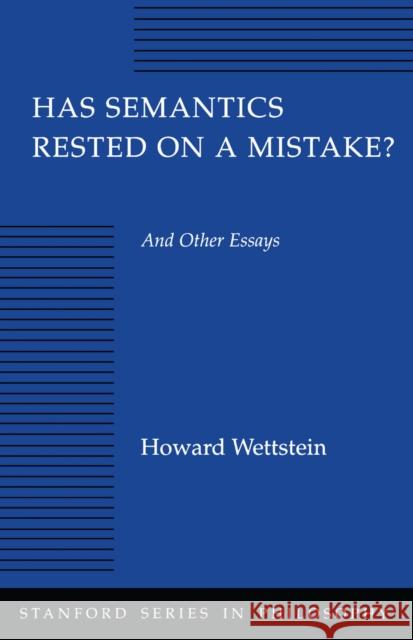Has Semantics Rested on a Mistake? and Other Essays » książka
Has Semantics Rested on a Mistake? and Other Essays
ISBN-13: 9780804718660 / Angielski / Twarda / 1991 / 248 str.
Has Semantics Rested on a Mistake? and Other Essays
ISBN-13: 9780804718660 / Angielski / Twarda / 1991 / 248 str.
(netto: 483,13 VAT: 5%)
Najniższa cena z 30 dni: 507,29
ok. 22 dni roboczych.
Darmowa dostawa!
The nature of reference, or the relation of a word to the object to which it refers, has been perhaps the dominant concern of twentieth-century analytic philosophy. Extremely influential arguments by Gottlob Frege around the turn of the century convinced the large majority of philosophers that the meaning of a word must be distinguished from its referent, the former only providing some kind of direction for reaching the latter. In the last twenty years, this Fregean orthodoxy has been vigorously challenged by those who argue that certain important kinds of words, at least, refer directly without need of an intermediate meaning or sense. The essays in this volume record how a long-term study of Frege has persuaded the author that Frege's pivotal distinction between sense and reference, and his attendant philosophical views about language and thought, are unsatisfactory. Frege's perspective, he argues, imposes a distinctive way of thinking about semantics, specifically about the centrality of cognitive significance puzzles for semantics. Freed from Frege's perspective, we will no longer find it natural to think about semantics in this way.











